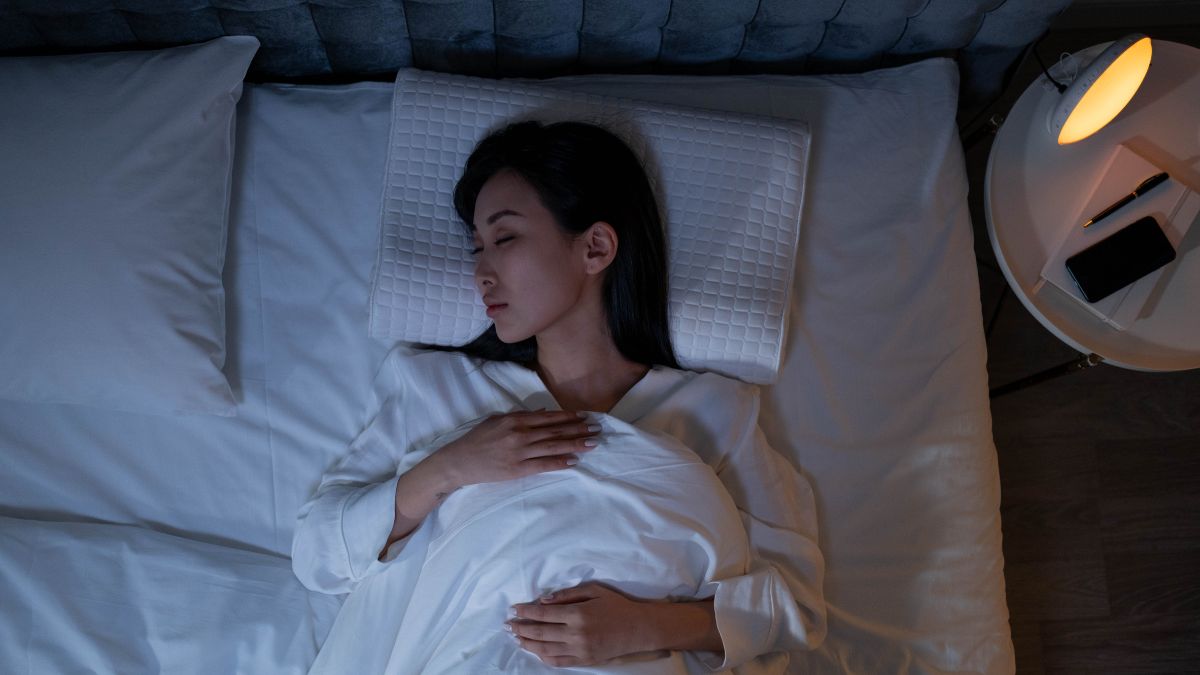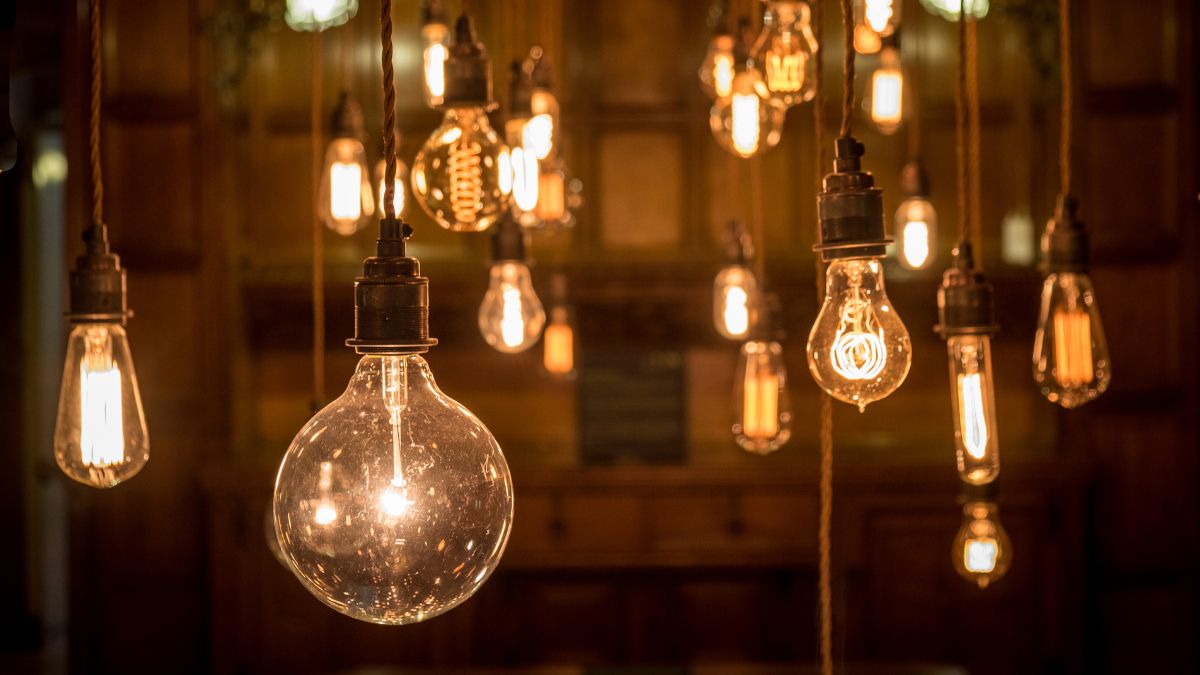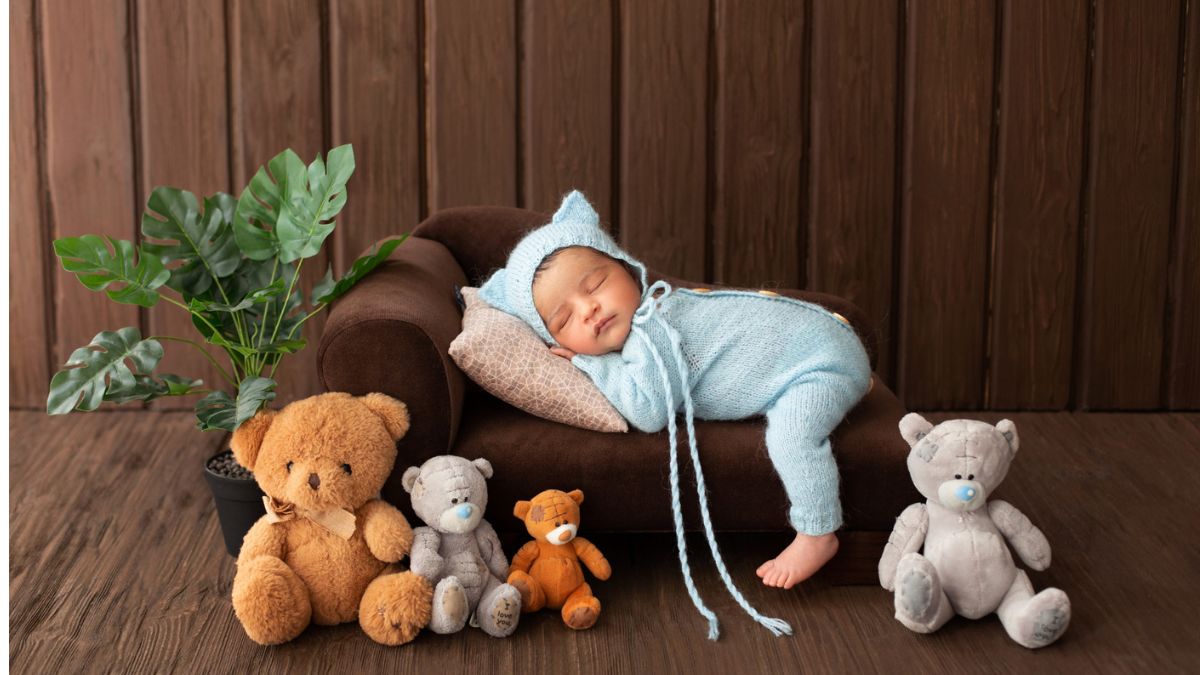Modern society has brought a lot of light into our lives. Streetlights to guide us, traffic lights to alert us, searchlights to protect us. All these things are good.
But all that light isn't always positive, especially at night. Here's an illuminating fact: The negative effects of using LED and blue lights at night can be both mental and physical, and they far outweigh any perceived benefits.
Hmmm. Looks like it's time to go to the dark side (at least after sunset).

The magic sleep hormone, melatonin
To understand the relationship between light and sleep, let's start by learning about melatonin , a powerful hormone that helps us fall asleep. Melatonin is a crucial part of our internal biological clock, or to use the scientific term, the circadian rhythm.
As night approaches, our bodies naturally produce higher levels of melatonin. When we expose ourselves to bright light during this time, our clocks are disrupted and the production of much-needed melatonin is stopped. The result? It's harder to fall asleep and stay asleep.
Losing sleep is just the beginning
Sleep loss is a big deal. In fact, research has shown that it can lead to everything from irritability to memory problems to illness. Melatonin and cortisol, hormones produced at night, may even play an important role in fighting cancer.
To test this theory, Dr. Richard G. Stevens, a cancer epidemiologist and professor at the University of Connecticut Health Center , injected lab rats with breast cancer-causing agents. Half of them also received injections of melatonin. The rats that received melatonin avoided contracting cancer, while the others were unaffected.
To reduce your risk of cancer, it's important to get a good night's rest (and a dark room is the best way to ensure a good night's sleep).

Shedding light on depression
The lighting in our homes at night can also, clinically, darken our mood. A recent study in Japan found a strong association between exposure to dim light at night and depressive symptoms in older adults.
And while this experiment focused on older people, study co-author Kenji Obayashi cautions that the effects could be even more pronounced in younger people, whose eyes are more sensitive and register more light.
Simply falling asleep with the television on or spending time online before bed can be enough to trigger depressive symptoms in a person of any age.
That's why it's advisable to turn off as many light sources as possible before going to bed , especially LEDs. The good news is that if you suffer from nighttime light depression, you can easily reverse its effects by changing your habits.
Avoid blue light when sleeping
Before you throw out all your nightlights , consider this: Not all nighttime light is bad for you. Blue light, the bright type of light that comes from natural sunlight and the LCD/LED screens on our electronics, can boost our attention, reaction times, and mood during the day.
But at night, it disrupts our biological clock and tricks our bodies into thinking we need to stay awake when all we need is to sleep. Reddish or orange light fixtures , on the other hand, are the least likely to suppress melatonin production and disrupt sleep.
Investing in a few dim, red nightlights is one way to soothe children who are afraid of the dark.
Sleep safely
Leaving the lights on at bedtime can lead to unsatisfying and disrupted sleep, not to mention all sorts of health risks. Keep these tips in mind to protect yourself from harmful blue light and get better quality sleep.
-
Turn off your electronics . Before bed, put your TV, laptop, and phone on "night mode" and limit your use of other blue light sources, such as LEDs, at least one hour before bed.
-
When your electronic devices are in "night mode," their screens are yellow, not blue, and won't distract you before bed.
-
Healthy sleep means stress-free sleep . Turn your bedroom into a worry-free zone right before bed. Since blue light disrupts sleep, keep your electronics away so you're not tempted to check anything in the middle of the night.
-
An app may be your solution . Can't seem to break your habit of using electronic devices at night? Install an app that will filter out blue wavelengths for you.
-
Pure darkness is key . Prepare yourself for better sleep by using blackout curtains and/or a sleep mask.
-
Dim the lights . Install dimmer switches so you can dim the lights at night and help your body prepare for sleep.
Let there be light! (in the morning, of course...)
If you want a dark bedroom for sleeping, it's good to wake up to light in the morning. Exposure to natural light helps improve mood and increase energy and alertness levels, so open the curtains as soon as you're up!
If you wake up before the sun, there are other types of light that are safe to use in the morning. Low-wattage bulbs (between 45 and 50 watts) provide a soft light.
Smart night lights change color, and while you can program them to turn yellow/amber to help you sleep at night, you can also set them to turn brighter in the morning.

What should I do if I still can't fall asleep?
If you follow these tips and still have trouble falling asleep, consult your doctor to see if you have underlying issues, such as a sleep disorder, that need to be addressed. They may be able to help you find the path to quality sleep.





Leave a comment
This site is protected by hCaptcha and the hCaptcha Privacy Policy and Terms of Service apply.